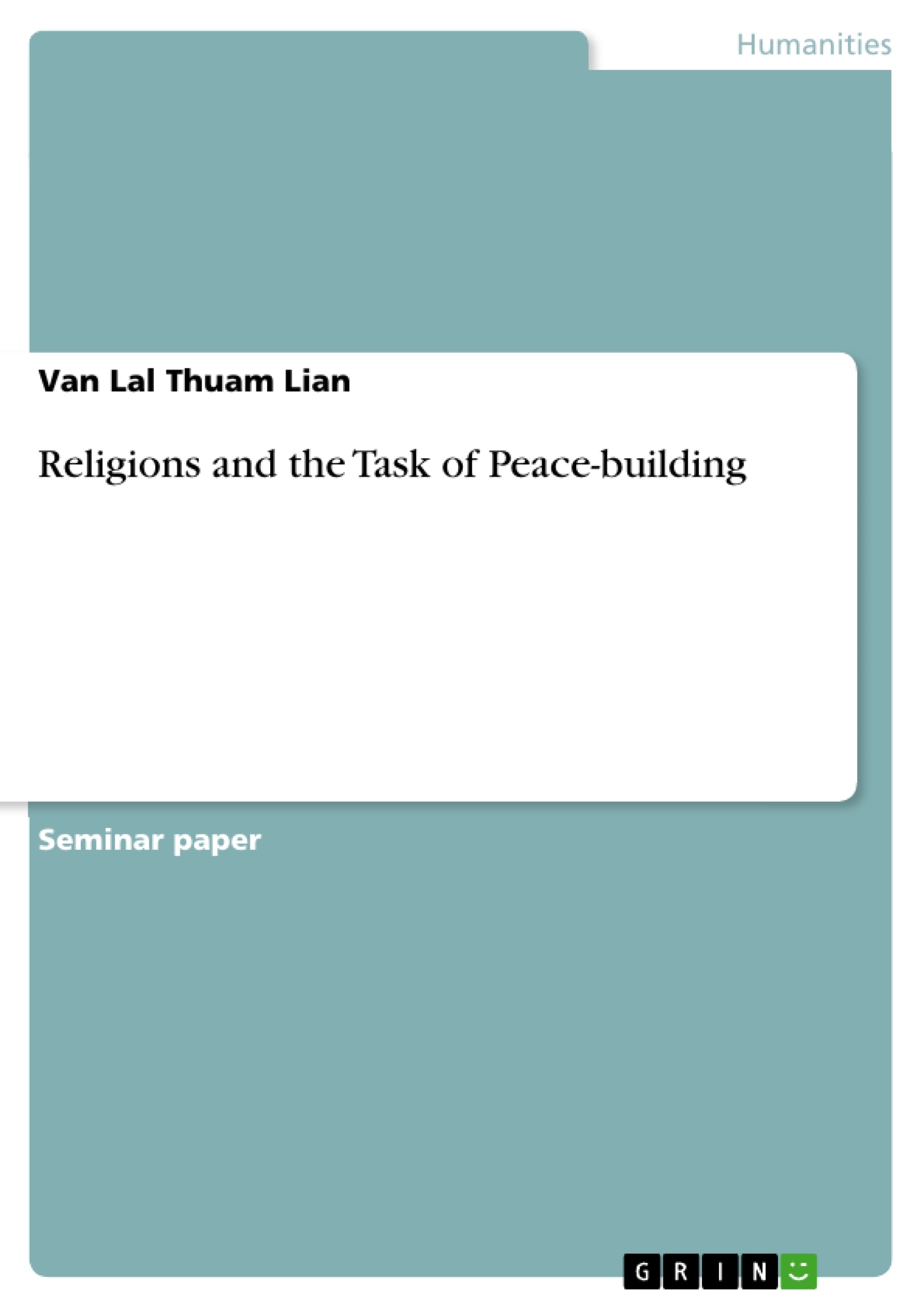Religion is expected by the secularists to decline slowly and be privatised and so not to have any influence on the public sphere. Also after the 9/11 attack the doubt over religion as a cause of terrorism became strong and atheists claim that they are right in labelling religion as the cause of violence. Therefore, people influenced by secularism and atheism claim that religion has nothing to offer the task of peace-building in the society. This essay is an attempt to critically look into this secularisation theory on the role of religion in the task of peace-building in the world and how far it is false.
The essay has three parts. The first part deals with the main ideas of secularisation theory and the atheists as they are the main groups excluding religion in the task of peace-building.
The second part, in response to the secularist and atheist theory, attempts to delineate the indispensable role of religion in the public sphere and in the task of peace-building from the perspectives of the resurgence of religion, the root of war and conflict, and sociology.
After arguing for the inseparableness of religion in the public sphere in the second part, the final part deals with the idea of peace-building, the contribution of religion to reconciliation and peace-building, and the challenge to the world religions in their engagement in the task of peace-building. Here, it should be acknowledged that the influence of Christianity, despite an attempt to represent different religions, will be often seen in the thought and terms used in the essay as it is written from Christian background.
Inhaltsverzeichnis (Table of Contents)
- Introduction
- I. Religions Have Nothing to Offer the Task of Peace-Building?
- 1. Secularisation Theory
- 2. New Atheism
- II. How Far is it False?
- III. The Role of Religion in Peace-Building
- 1. Concept of Peace-Building
- 2. Contribution of Religion to Peace-Building
- 3. Challenge to Religions in the Task of Peace-Building
- Conclusion
Zielsetzung und Themenschwerpunkte (Objectives and Key Themes)
This essay critically examines the secularization theory's assertion that religion has no role in peace-building. It argues that this view is flawed, highlighting the resurgence of religion globally and its undeniable influence in the public sphere. The essay explores how religion, far from being a source of conflict, can contribute to reconciliation and peace-building. It also considers the challenges faced by religions in engaging with the task of peace-building.
- The secularization theory and its claim that religion is irrelevant to peace-building
- The resurgence of religion and its impact on public life
- The role of religion in promoting peace and reconciliation
- The challenges faced by religions in peace-building efforts
- The significance of religious perspectives in the public sphere
Zusammenfassung der Kapitel (Chapter Summaries)
The first chapter introduces the concept of secularization theory, which posits that religion will decline as societies modernize. It also examines the New Atheist movement, which argues for the elimination of religion as a source of violence. The second chapter challenges these perspectives by highlighting the global resurgence of religion and its active presence in public life. It argues that religion is not destined to fade away but rather plays a vital role in society. The third chapter delves into the role of religion in peace-building, exploring how it can contribute to reconciliation and address conflict. It also acknowledges the challenges faced by religions in engaging with peace-building efforts.
Schlüsselwörter (Keywords)
This essay focuses on the role of religion in peace-building, examining the secularization theory and the New Atheist movement's claims that religion has no place in this endeavor. Key themes include the resurgence of religion, its presence in the public sphere, the potential for religion to contribute to reconciliation, and the challenges faced by religions in peace-building efforts. It also explores the intersection of religion and politics, highlighting the significance of religious perspectives in shaping public discourse and policy.
- Quote paper
- Van Lal Thuam Lian (Author), 2016, Religions and the Task of Peace-building, Munich, GRIN Verlag, https://www.grin.com/document/336292



